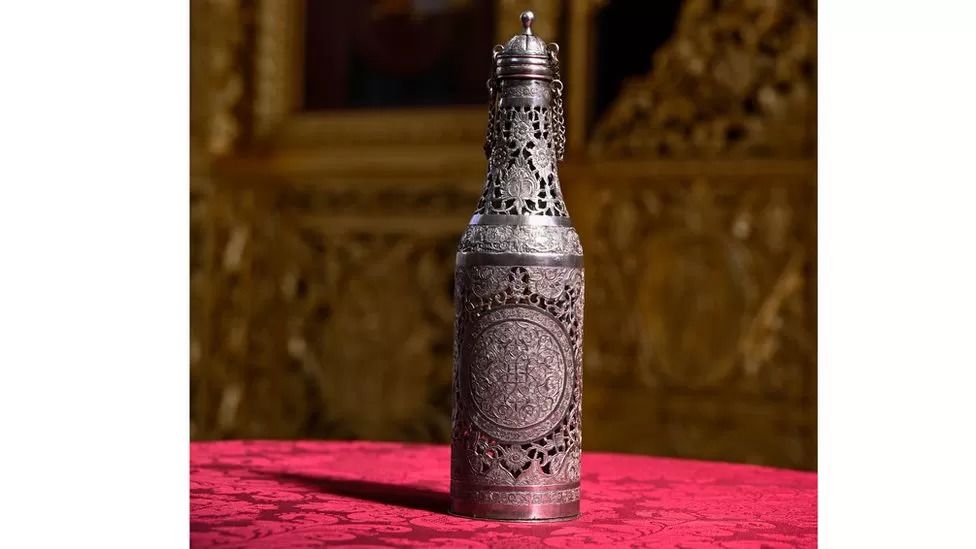
Sacred coronation oil will be animal-cruelty free
But reflecting modern animal-friendly sensitivities, this oil will not include any ingredients from animals.
The "chrism oil" for the coronation was consecrated in a religious ceremony in Jerusalem on Friday.
This was carried out in one of the city's holiest Christian sites, the Church of the Holy Sepulchre.
Previous versions have included civet oil, from the glands of the small mammals, and ambergris from the intestines of whales.
There had been concerns about animal cruelty and the need to protect wildlife and the latest formula for the holy oil for King Charles's coronation will be animal free.
Although the coronation is seen as a great moment of national pageantry and historic rituals, there is a strong religious element.
The anointing of the King has echoes of a christening or the ordination into religious orders, with the monarch being symbolically touched with holy oil on the head, chest and hands.
 The silver urn containing the chrism oil for the coronation
The silver urn containing the chrism oil for the coronation
This was considered such a sacred moment that the television cameras were not allowed to film it in 1953 - and there has been speculation about whether the anointing will be shown on TV during King Charles' coronation on 6 May.
The new oil includes olive oil scented with a mix of essential oils, sesame, rose, jasmine, cinnamon, neroli and benzoin, with orange blossom also added.
It also has a royal family significance, partly using olives grown on the Mount of Olives at the Monastery of Mary Magdalene, which is where the King's grandmother, Princess Alice, is buried.
In his Christmas message, the King had spoken of his own Christian faith and how much he had been moved when he visited biblical sites, such as Jesus' birthplace in Bethlehem.
The oil was consecrated by the Patriarch of Jerusalem and the Anglican Archbishop in Jerusalem, at the Church of the Holy Sepulchre, built on the site where it is believed Jesus died and was buried.
Justin Welby, the Archbishop of Canterbury, welcomed the use of oil from the Mount of Olives, a site outside Jerusalem with many biblical connections.
"This demonstrates the deep historic link between the coronation, the Bible and the Holy Land," said the archbishop.
He added: "From ancient kings through to the present day, monarchs have been anointed with oil from this sacred place."
The implements used for the anointing - including a spoon - are rare survivors of the original medieval coronation regalia, most of which were destroyed on the orders of Oliver Cromwell in 1649.










